5 Best Herbs to Grow in Your Garden
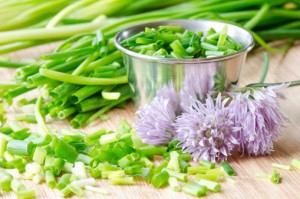 Mother Nature has been teasing us with the snowy spring weather, but this last storm is not going to break our stride. We’re still planning our gardens as if we didn’t just get a fresh blanket of snow! Right now we’re focusing on adding a little flavor to our gardens with herbs. Herb gardens make so much sense — herbs can get pretty expensive when you buy them fresh — so we’ve put together a list of the best herbs to grow in your garden.
Mother Nature has been teasing us with the snowy spring weather, but this last storm is not going to break our stride. We’re still planning our gardens as if we didn’t just get a fresh blanket of snow! Right now we’re focusing on adding a little flavor to our gardens with herbs. Herb gardens make so much sense — herbs can get pretty expensive when you buy them fresh — so we’ve put together a list of the best herbs to grow in your garden.
Chives Chives are versatile for cooking — freshly minced, they add bright green to an omelet, give cream cheese a delightful zip or boosts a soup’s freshness. Chives are also rich in dietary fiber, packed with vitamins and an excellent source of folate. While they do so much for our food and bodies, they’re also easy on the eyes. When they’re in bloom, their wisps frame a delicate purple flower that some gardeners use as edging for herb gardens. To make sure they’re as happy as they make us, keep them in full sun. They’re not picky about the dirt they grow in — they grow well even in poor soil.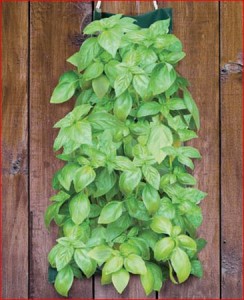
Basil Basil is great on pizza, makes pesto perfect and produces a stand out pasta salad. There’s no herb that you’ll use more than basil! Basil is a great source of protein and vitamin E on top of being tasty. Basil plants are bright green and don’t stop growing if they have rich, moist soil and a good six hours of sunshine every day. They’ll be good to plant outside two weeks after the last frost.
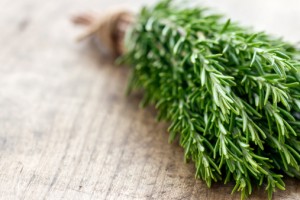 Rosemary There’s no shortage of health benefits from rosemary — it’s good for digestion, makes our hair and skin nice as well as boosts our immune system. In the kitchen, it’s fantastic roasted with chicken, infused with oil for salad dressing or in drinks, it adds a unique layer of flavor to cocktails. In the garden, rosemary brings a garden bed a unique aesthetic. It has leaves that are like soft needles with a piney fragrance. That fragrance is very relaxing — studies have shown that it can actually reduce hormones that make us feel on edge and anxious. If you put it on a garden path for people to brush against, it releases its scent to make your garden a sensory oasis. To care for rosemary, give it full sun with well-drained but moist soil and prune it regularly.
Rosemary There’s no shortage of health benefits from rosemary — it’s good for digestion, makes our hair and skin nice as well as boosts our immune system. In the kitchen, it’s fantastic roasted with chicken, infused with oil for salad dressing or in drinks, it adds a unique layer of flavor to cocktails. In the garden, rosemary brings a garden bed a unique aesthetic. It has leaves that are like soft needles with a piney fragrance. That fragrance is very relaxing — studies have shown that it can actually reduce hormones that make us feel on edge and anxious. If you put it on a garden path for people to brush against, it releases its scent to make your garden a sensory oasis. To care for rosemary, give it full sun with well-drained but moist soil and prune it regularly.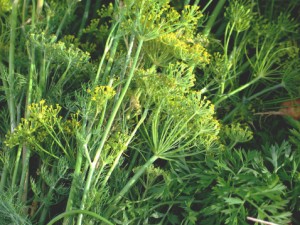
Dill Dill can turn just about anything into a summer treat — mixed with Greek yogurt, it makes a fabulous sauce for grilled chicken, it stamps out bland in egg or potato salad and it’s the perfect addition to savory baked goods like scones. Dill is also packed with anti-oxidants, vitamin C and folic acid, so you can’t go wrong by sprinkling it on your meal! In the garden, it’s feathery fronds peak out behind adorable yellow blossoms to add a little brightness to your herbs — it’s also a butterfly magnet! To care for dill, give it full sun, plant it in deep soil water it moderately.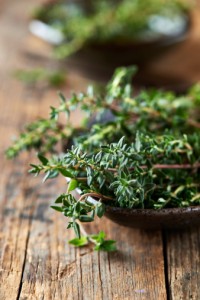
Thyme Thyme is a good source of folate, calcium and dietary fiber. It’s also known to lower blood pressure as well as boost your mood. In the kitchen, it’s popular for our holiday dishes — Thanksgiving probably wouldn’t be the same without it! It brings out the flavor in mushrooms, roasted vegetables and poultry. In the garden, thyme is a little different than the other herbs mentioned in that it makes fabulous ground cover. It looks great surrounding garden paths or as a flowery, fragrant blanket peppered with tiny blossoms on a garden bed to attract bees. To care for time, give it full sun and soil that drains well.





